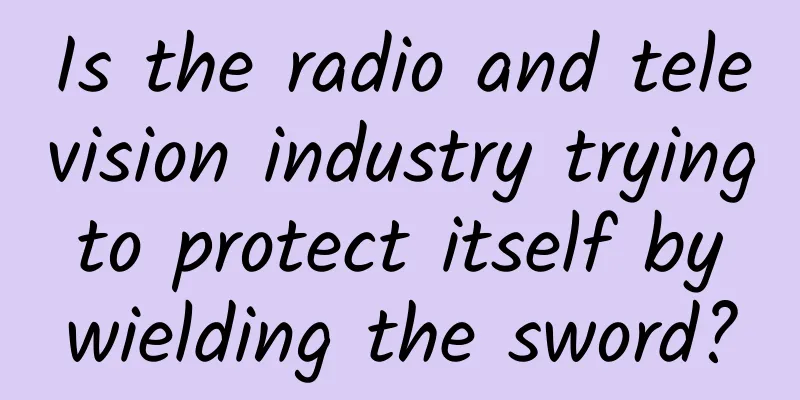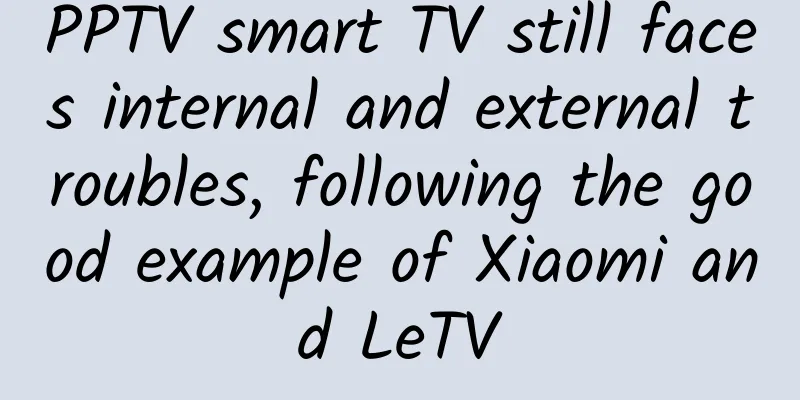Why can’t Douban’s top influencers get advertising on Weibo?

|
As a blogger, your own content is like a brand’s product. The blogger’s product is his or her own content and reputation, and building trust between users and bloggers is a long-term process. I met Sister Dao in 2015. At that time, she found me on Douban to work on a Black Friday advertisement for an American e-commerce company, which was considered very cutting-edge. At that time, I had about 50,000 followers on Douban, and was a small blogger ranked among the top 400 in the Douban ecosystem. According to my observation at the time, there were not many bloggers with more than 50,000 posts and continuous output. There seemed to be only a dozen or so that I could see and know. I now have 100,000 followers, making me one of the top internet celebrities on Douban. Back to the experience of working with Sister Dao, during the "Black Friday" period in 2015, I published two blog posts under the Douban account "Wang Houhou". In the end, the data of the two posts basically maintained at "nearly 60,000 views, 3,000 to 4,000 likes, 4,000 to 6,000 collections, and nearly 200 reposts." Data on my collaboration with Dao Jie For me, I finally reached an exposure rate of 120%. This is real data without buying fans and writing content seriously. However, on Weibo, I discovered another business ecology of bloggers. A fashion blogger with 4 million followers collaborated with a brand on a Vlog. After buying hot spots and headline recommendations, the final data was as follows: “172 reposts, 280 comments, 1600+ likes” (not counting the fans and reposts that may have been bought). A Weibo blogger with 4 million followers has less exposure data than me, a small Douban influencer with 50,000 followers? ! This result was an eye-opener for someone from Douban. Even so, there are still brands that continue to invest in Weibo bloggers? Can people still make money with such traffic data? 1. Magical Conversion Rate I now have over 100,000 followers on Weibo, which is comparable to Douban. Due to Douban’s fame, I have done two or three advertisements on Weibo, such as a hair removal agency in Shanghai, and some fashion brands. What’s interesting is that within 2 hours of posting the promotional post on Weibo, my PR company contacted me and told me that they had bought the hot posts and fake reviews… This kind of “routine operation” means that in the Weibo ecosystem, the blogger (me) cannot actually understand the real conversion situation… However, the Douban ecosystem is a different story. In 2015, I wrote a recommendation article for a Taobao store on Douban. Although it was viewed by less than 60,000 people and collected by 15,000 people, the data was extremely real and not exaggerated: As for conversion rates, I hadn’t used Taobao Affiliate at that time, so the specific data could no longer be measured. However, a few years later, when I was communicating with a Taobao store that I had written about in a recommendation article, I learned that the popularity of one of my articles had brought their Taobao store an increase of more than 10,000 fans. The magnitude of ten thousand is something I cannot even imagine. Because my partner and I were students studying in the United States at the time, and we started making recommendations simply because we liked Taobao. Later, when I was producing content on Weibo, I was soon annoyed by Weibo’s promotion method, which did not classify people by interests but relied on spending money. Until now, I am still looking for a balance - there is good content, but do people have to pay for it to see it? It’s like you can obviously get into a key high school, but because others are squeezing money in, you have to squeeze money in too. If you don't pay, you will be eliminated. Is there no problem with this mechanism? 2. What I discovered when I became a top influencer on Douban Being a top internet celebrity with 100,000 followers on Douban, my feeling is: real. Douban is not a platform that can make people famous overnight, and celebrities on Douban rarely become famous overnight. However, celebrities will not die quickly on a platform that cannot monetize quickly. Because the basis for a celebrity to become popular is content. Many people think that Douban is too "literary" and that literature and art cannot be monetized. However, what these people overlook is that only those who can express themselves through words and language are worthy of being forwarded. By looking at the topic square that reflects the average level of Douban, you can understand the writing ability of this group. It took me about 10 years to have 100,000 followers on Douban. Precisely because it took me 10 years to build such a relationship, I will not accept advertisements casually. If I accept an advertisement, I will tell the advertiser: This article must be written in my own way, because only in this way will I avoid being criticized too harshly. Douban's ecological rules have created bloggers who can create content. Afterwards, these bloggers moved to Weibo and other platforms, and almost all of them became big accounts. The well-known Mimi Meng, Wanwan, Ximen Dasao, and Papi Jiang were all early Banyan users and later became influencers on other platforms. Weibo’s mechanism is to spend money. If you don’t buy fans, don’t buy data, and don’t have a big friend, why would the overwhelming information flow recommend it to you? How can users who are stimulated by entertainment headlines all day long pay attention to high-quality content? Therefore, Weibo "screened out" a group of original bloggers who were unwilling to pay protection fees to Weibo. The compromise I made after switching to Weibo is: I would rather participate in a lottery and forward a post than buy a popular post. It’s better to give the money to fans instead of giving it to Weibo. For example: a video that originally had only more than 100 reposts, and then the earrings in the lottery video were reposted. It turned into more than 300 actual reposts: However, it is unknown how long this strategy can last. 4. Because I have been a blogger, I will not advertise on Weibo bloggers When I was working on the fashion e-commerce brand gogoand, my partner and I researched a circle of fashion bloggers and found that the return rate of investing in bloggers was too small. Many fashion bloggers did not become popular by recommending products in the beginning, but by creating a herd mentality of "Look, everyone else likes me." So when they start recommending products, especially in the form of long, entire videos that fans are unfamiliar with, everyone is skeptical. For example, this Vlog by the Weibo blogger on the bee swarm incident is a typical example: it records the so-called fancy life, does not express opinions, and uses a diary-like shooting style. It is obvious at first glance that the company operates on a large scale. The unsustainability of Weibo lies in its inability to support niche bloggers well and to provide traffic to those who sincerely share their lives and create content rather than those who seek to make money by leveraging capital. In this way, there will be less and less good content. However, Douban is another matter. Douban users have a high degree of stickiness, and there is almost no buying of fans or controlling reviews for personal bloggers. Once a questionable product appears, it will be exposed by highly sensitive Douban users. As a result, Douban bloggers will have higher quality control over the products they promote, and fans will be more receptive to them. Let me share a story. I once worked on a Weibo advertisement for a skin rejuvenation/hair removal institution in Hong Kong. I paid for hair removal at this institution for a year and a half. As a senior user, I asked them why they didn't advertise on Douban? Their answer was that they would be scolded every time they advertised on Douban. This medical beauty institution is the one with the highest standards that I have ever been to, but it is still doubted by Douban users, which also shows the caution of Douban users (xiao qi). Douban users’ reputation of being “annoying and difficult to please” has been around for a long time. There was once a girl who had 100,000 fans and advertised on Douban, but she was eventually exposed. The reason for the revelation is that RMB 16,000 per piece is too expensive? ? Strict Douban users have a strong sense of trust in bloggers. I have also done Taobao customer links on Douban. The thing I remember most clearly is that I posted a broadcast saying "I really recommend this piece of clothing, it's so comfortable to wear". Within five minutes, there were more than 20 orders for this piece of clothing, which surprised me very much. It was a niche Taobao brand that I liked very much at the time. I bought it frequently and contacted the owner to give me the Taobao affiliate link. And now, I have become a partner of this brand. If the same thing happened on Weibo, the effect would be very different - people would leave messages and comments, but purchases would be much less. Because people are always suspicious of recommendations on Weibo - "How can someone promote something on Weibo without getting paid?" 4. TO brand owners, my suggestions on advertising Therefore, I would like to say that if a brand does not have a lot of money to burn, it must pay attention to the platform and the way KOLs communicate with fans. After receiving the brief from the brand, does the KOL casually modify the brand copy, or speak for itself again in its own words? These small details can help you understand whether these KOLs have requirements for the content they publish. Only KOLs who are responsible for their own content will attract loyal fans who are willing to pay out of their own pockets to show their support and tend to continue spending money. I have a few suggestions for this: (1) Bloggers who run their own stores will not be advertised by accounts that frequently advertise and then run away after collecting a sum of money. I used to think that bloggers who opened their own shops were not suitable for advertising. Because the advertising information will conflict with the blogger’s own store promotion. And now I believe that it is precisely because the blogger opens his own store that we can be sure that he or she has real traffic. There is a Taobao shop owner I know who has 140,000 followers on Weibo (which should be considered very few), and his Taobao shop’s monthly sales can reach 700,000. This data also proves the fans' trust in her and the blogger's ability to sell products. At the same time, the fact that fans continue to become repeat customers also proves that she is more cautious when recommending content and the quality is relatively high, because no one wants to contradict themselves and lose those loyal fans who spend money on them. (2) It is important to place your favorite bloggers on the same page. Brand managers should invest in bloggers they like. I know that some people will recommend bloggers who can "sell products" but do not match the brand's tone. Regardless of the authenticity of the data, have you ever thought that this will give the brand a confusing image? It's like a women's clothing store starting to sell men's socks. It's unbelievable. There are also some fans of pet and comic bloggers on Weibo. After seeing that the people they follow have finally started to accept advertisements, they will also place orders with a supportive and trusting attitude, as if “baby, you finally got an advertisement, dad is happy for you”. (3) Figure out whether you are doing branding or marketing, exposure or sales My understanding is that branding is a long process that allows people to get to know you and see you from different channels. For example, KFC and McDonald's are engaged in long-term branding. They do not expect people to consume a certain number of hamburgers immediately after seeing a campaign. However, marketing is done one at a time, and its purpose is to bring goods and improve sales performance. I have a friend who once did a marketing campaign for an electronic product brand in order to promote a specific product within a certain period of time. However, since the product itself was not cost-effective and foreign brands did not understand China's Weibo KOL ecosystem very well, they spent more than one million on Weibo KOL, but the total price of the headphones was less than half of the marketing cost. Therefore, both branding and marketing require the same thing: high-quality content that people can remember when they see it. in conclusion Finally, let me share another story. I have a friend who lives in Tokyo. He once went to interview some of Tokyo’s “Internet celebrity” coffee shops on behalf of a relatively authoritative and popular domestic magazine, but everyone refused his interview. Their reason is simple: they don't want to be exposed to the spotlight that is inconsistent with their own tone. In fact, as a blogger, your own content is like a brand’s product. The blogger’s product is his or her own content and reputation, and building trust between users and bloggers is a long-term process.
Bought, fake, piled up, time will eventually tell you - these are not yours. Author: Wang Houhou Source: Daojie Doris |
<<: Luckin Coffee community operation skills!
>>: Crazy Douyin free traffic card live room square
Recommend
Baidu World Conference releases new products and AI technology ranks among the world's top
The 2017 Baidu World Conference was held in Beiji...
Xiangxiang SEO training: Beware of website construction traps for later SEO optimization
In the process of website construction , we must ...
Jiangmen Mini Program Customization Company, how much does it cost to customize a course and purchase a mini program?
In order to better penetrate into various industr...
Super Fan Pass is online, how to use it? This guide may be the most complete!
On August 23, all Fans Channels were switched to ...
Why do you rebound after losing weight? Does your body remember that you were fat?
Recently, according to the National Health Commis...
Advertising tips for the financial industry in November!
The November sale is just around the corner, and ...
Why are most of the mobile phones sold around the world made in China, South Korea and the United States? Don’t other countries make mobile phones?
[[441305]] According to the global mobile phone s...
The electricity you use in your lifetime is probably only enough for these people to post a few photos...
We are already inseparable from the Internet. In ...
Baidu Search launches new account management diagnostic analysis, increasing leads by 20%
There are many new optimizers entering the indust...
More than 60 tools for event operation and promotion, a must-have!
To organize a good event, it often goes through t...
Tencent Music is in a dilemma
Revenues for the fourth quarter and the entire ye...
1 core, 5 techniques, and 3 principles for writing good titles
Zhang Xiaolong said: Even the smallest individual...
Which way to the moon?
Recently, the "Artemis 1" has come to a...
Analysis of brand private domain cases!
A friend sent me a small game called "Cloud ...









